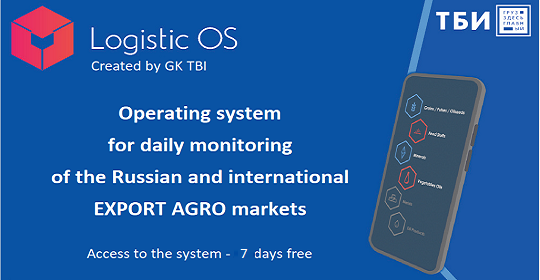Exporters note that in the last month wagons with grain often stand on the tracks for a long time (up to a month) due to checks.
Entrepreneurs who ship cargo to the Baltic countries, as well as to Novorossiysk and Tuapse faced such difficulties. In most cases, this is necessary in order to further load the grain on sea vessels and send it to other countries.
What is the reason for the restrictions?
One of the possible reasons is increased load on the infrastructure. There are a lot of people who want to have time to export grain from Russia before the introduction of quotas and duties (and they are expected in the next couple of months). Therefore, Russian Railways simply cannot cope with the loads.
According to Russian Railways, in September 2020, all records were broken: in a month the company transported more than 3 million tons of grain. And this is 1.4 times more than a year ago. And in the subsequent months of autumn, the rate of grain transportation did not decrease at all.
In other words, volumes have grown so much that the railways simply cannot handle them.
At the same time, if we talk about December, the export of grain by November fell by 30%. This was announced by the director of «SovEkon» Andrey Sizov. Therefore, there are simply no obvious reasons for «traffic jams» to form on the railway tracks.
Maybe someone is behind this?
The opinion that the restrictions are artificial also exists. This mainly applies to cases where delays are due to customs.
Chairman of the Board of the Union of Grain Exporters Eduard Zernin noted that out of 25 members of the organization, six had problems with cargo delays at the end of this year. That is, the problem is systemic.
And the vice-president of the Russian Grain Union Alexander Korbut added that any activity of customs or Rosselkhoznadzor in all cases means that was given a “command from above.” After all, these are all power control and supervisory agencies, which are nothing do without direct instruction.
And from this we can already conclude that there is artificial containment of exports.
Despite the fact that quotas and duties have not yet been officially introduced, the state through its departments has already begun to gradually «slow down» the export of grain abroad so that exporters do not have time to sell too much. Well, since there are no legitimate reasons for such restraint at the moment, any pretexts are used.

Alexander Korbut added that if this happens often, the country’s prestige will suffer. After all, buyers of Russian wheat want to be sure that they will receive their cargo on schedule, without delays. But exporters today can no longer guarantee this due to those very checks.
At the same time, Rosselkhoznadzor and the Ministry of Agriculture do not accept accusations that delays are due to their fault.
Be that as it may, it is already obvious to all market participants that the problem will hardly be solved before February, when quotas and duties will be introduced. So the difficulties for Russian grain exporters are unlikely to end in the near future.

